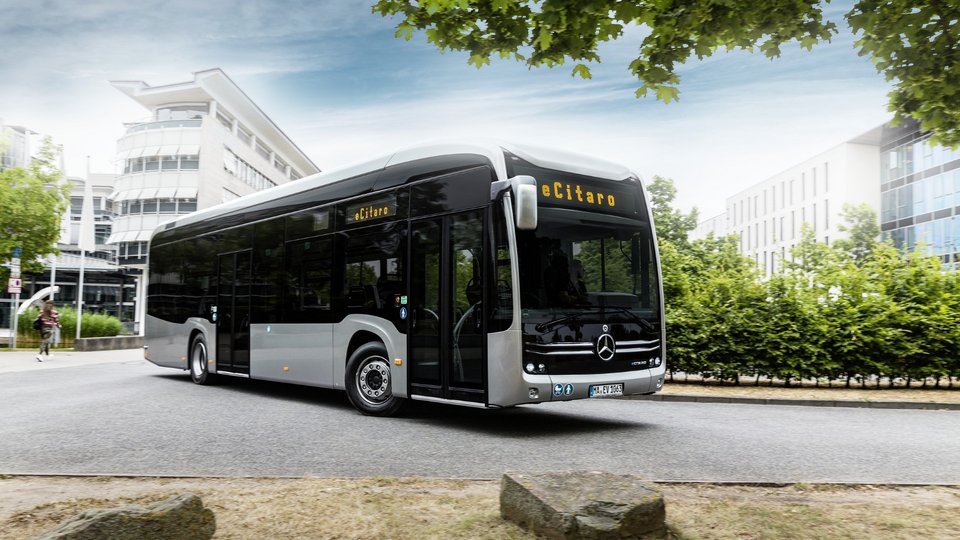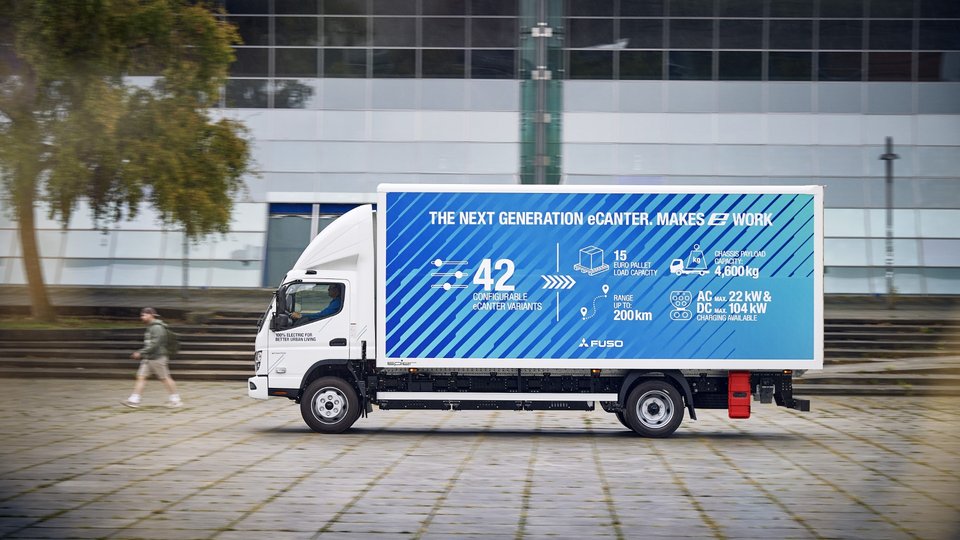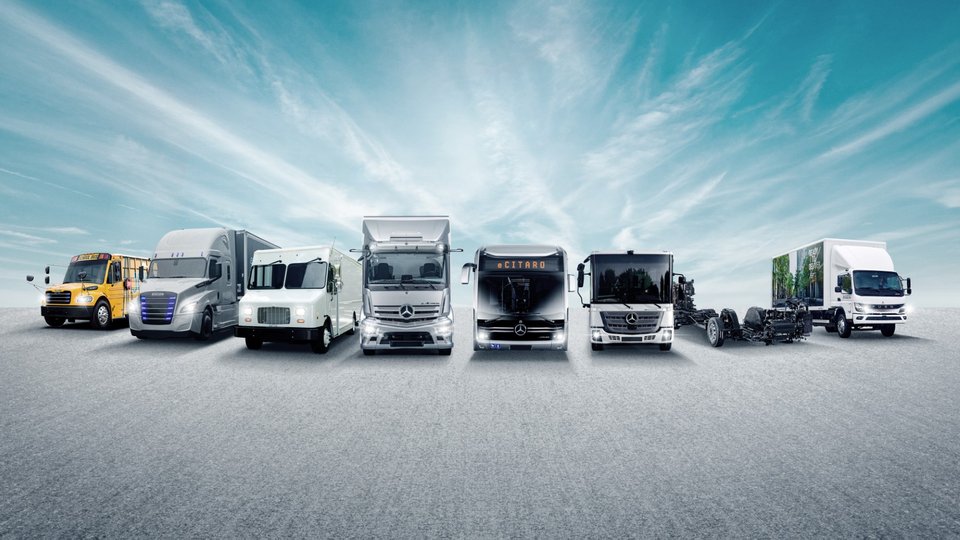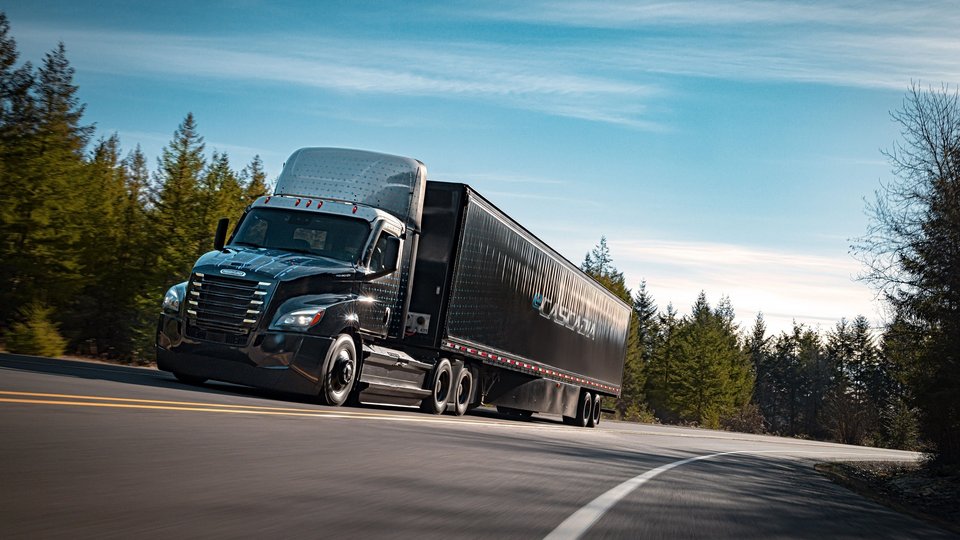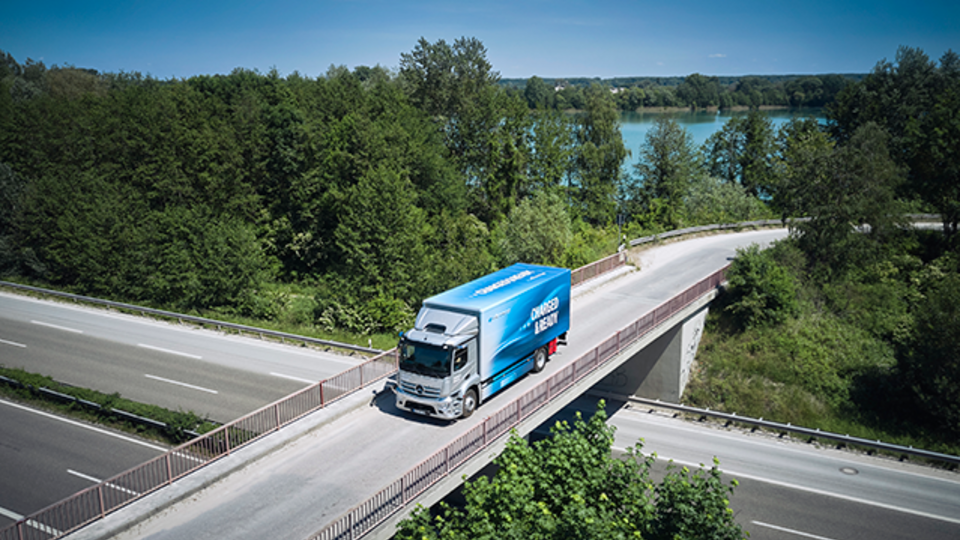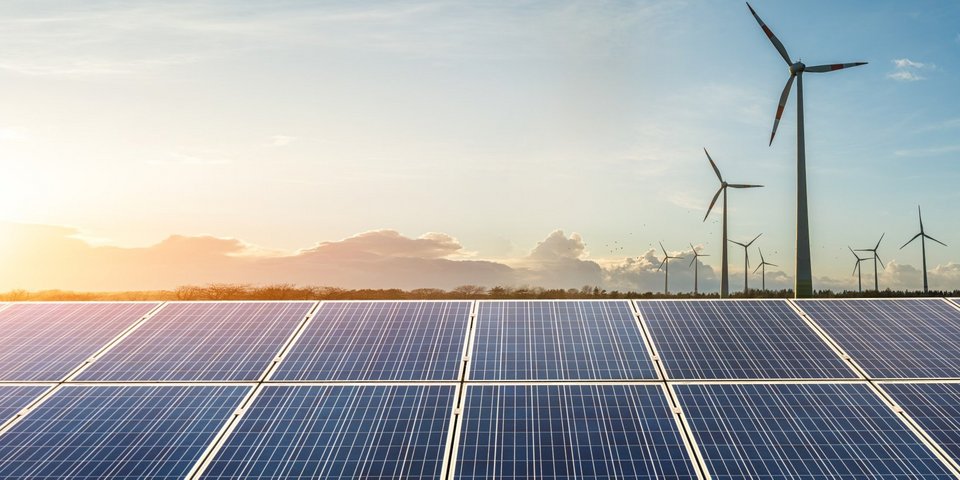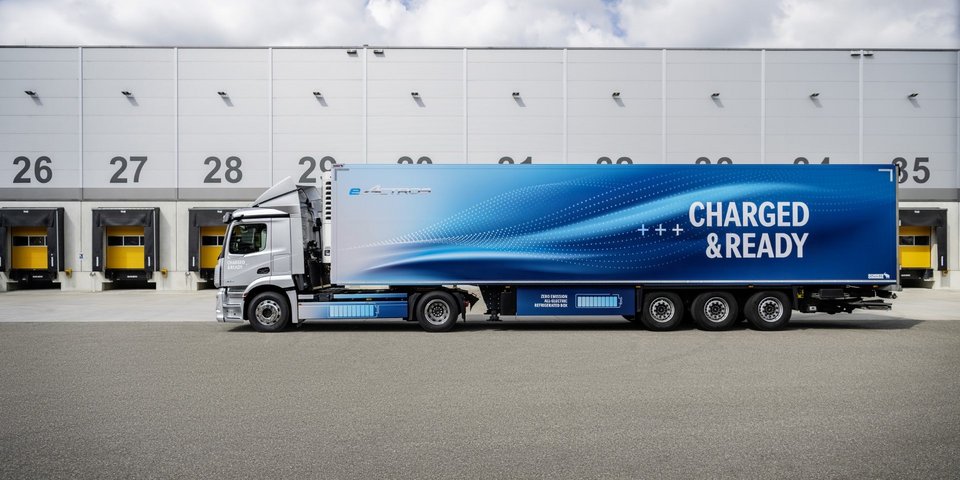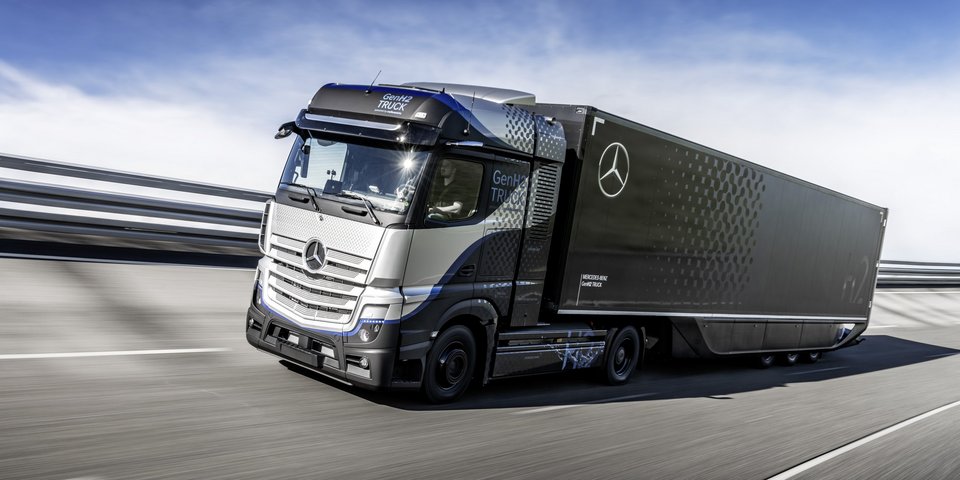Transport plays a significant role in global climate change. Daimler Truck wants to make CO2 free transport during driving operation a success and thus contribute to combating climate change.

Green Products

Climate change is the biggest challenge of our time. To combat it, we need to drastically reduce our greenhouse gas emissions. Road traffic plays an important role in this: According to a study the International Energy Agency, it is responsible for 7,7 gigatons of the global CO2 emissions. More than 75% of this is attributable to road traffic.
As one of the world’s leading manufacturers of trucks and buses, we are facing up to our responsibilities – and are working consistently on decarbonizing our fleet.
Our ambition
We strive for our new trucks and buses to be CO2e free during driving operation in Europe, US and Japan by 2039 – and globally by 2050.
It is important for us that we contribute to the transformation of the transport industry as a whole.
We are fully committed to make passenger and freight transportation CO2e free during driving operation. Thus, we are implementing our dual strategy with battery-electric and hydrogen-powered drives and bring vehicle after vehicle into series-production.


Our path
We are working purposefully to make vehicles more environmentally friendly and to focus on product-related climate protection. To do so, we are following these four strategies:
-
Alternative drive technologies
In decarbonization of transportation and passenger transport we are focusing on two complementary technologies to supply energy to the engines: batteries and hydrogen fuel-cells. We already have a whole range of battery-electric truck and bus models in series production (see also here).
We are producing eleven battery-electric trucks and buses in series since the end of 2023. When it comes to hydrogen, we are already intensively testing the first fuel cell truck prototypes of the Mercedes-Benz GenH2 Truck on public roads in Germany and Europe.
-
Expansion of charging infrastructure
Together with strong partners, we are promoting the expansion of a nationwide charging infrastructure for CO2e free transport during driving operation - for both battery electric and hydrogen-powered vehicles.
We believe that the transformation of passenger and freight transportation can only be achieved through a joint effort by governments, vehicle manufacturers, technology and energy companies. That is why we are not only launching new CO2e neutral vehicles that are CO2e free during driving operation, but are also accelerating the development of the necessary charging infrastructure. In this way, we want to continuously increase the sales of zero-emission vehicles while driving in the markets and at the same time reduce the number of conventional vehicles.
We collaborate with partners in joint ventures such as Milence in Europe, Greenlane in the U.S. and H2Accelerate, to bring forward the expansion of charging infrastructure, both for battery-electric and hydrogen-powered vehicles.
-
Natural Resources
We take great care with natural resources in the product and production cycle. During product development, we prioritize recycled materials and materials with the longest possible life cycle.
Efficient technology and an aerodynamic, lightweight design, enables us to reduce the energy or fuel consumption of our products during their use-phase.
To further avoid waste, we are working to extend the service life of all vehicle components by, for example, using particularly durable materials. We are also addressing recycling solutions for our high-voltage batteries: Our vehicles are only equipped with re-usable batteries.
-
Life Cycle Assessments
We use Life cycle assessments (LCA) as a holistic approach to assess our products. Trucks and buses, for example, are investigated over their whole life cycle including the supply chain, production, customer use and end-of-life phase to identify potential improvements.
Our progress so far
- We are producing eleven battery-electric truck and bus models in series worldwide.
- Hundreds of customers have covered millions of kilometers with our battery-electric trucks and buses.
- Fuel-cell joint venture established together with the Volvo Group, cellcentric, to build one of the largest series productions of fuel-cell systems in Europe.

Our next steps
We still have a long way to go on our journey towards CO2e free road transport during driving operation. These are the next milestones:
- We want significantly increase our sales of trucks with electric drive in Europe by 2030. Therefore, we continue to electrify our portfolio step by step.
- We are further developing our hydrogen-powered Mercedes-Benz GenH2 Truck and we are now building a first customer-trial fleet of Mercedes-Benz GenH2 Trucks.
- We are working on electrifying the complete city bus portfolio for the European market by 2030. Our aim is to have an electrically powered interurban bus in our portfolio from 2025, and to offer coaches with a hydrogen-based fuel cell drive from the end of the decade. Furthermore, we want to offer in each segment CO2e free bus models during driving operation on the basis of battery or H2 technology.

